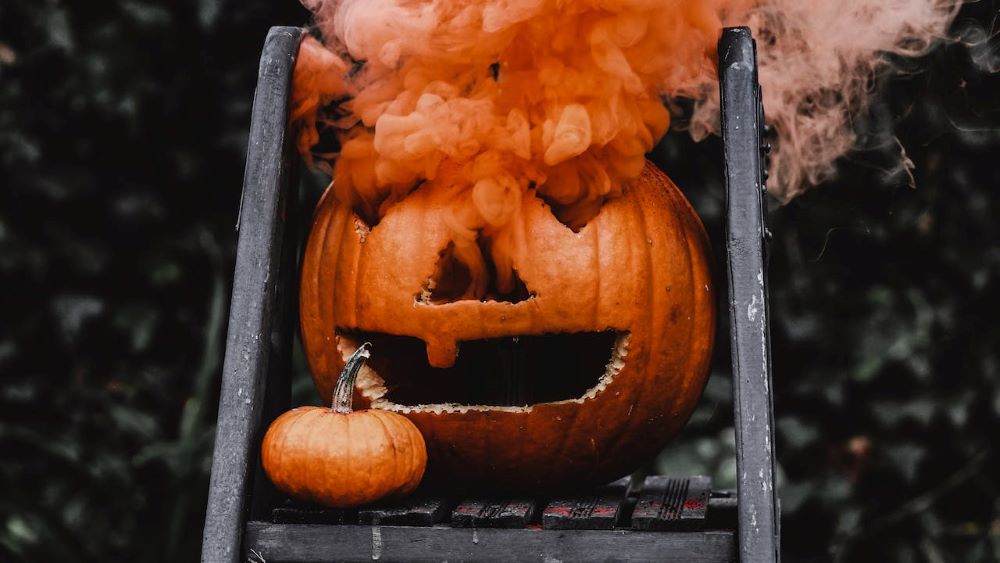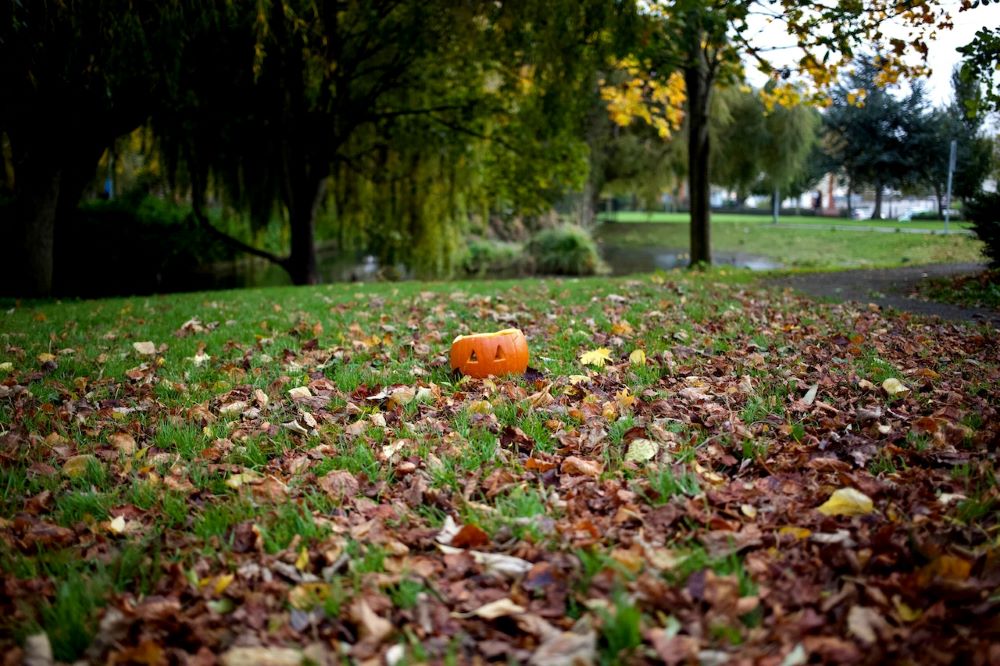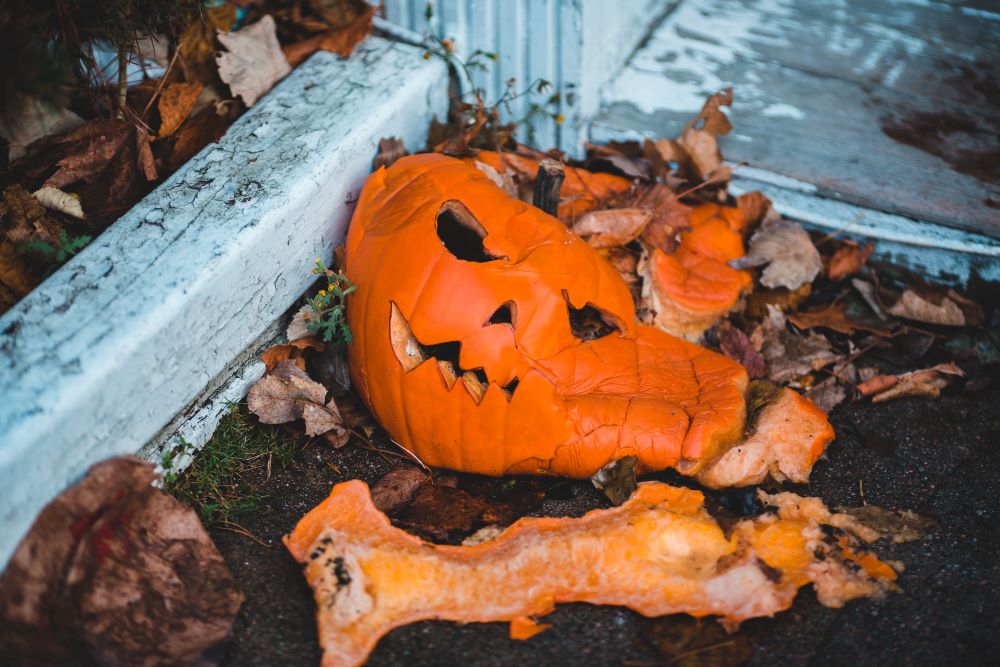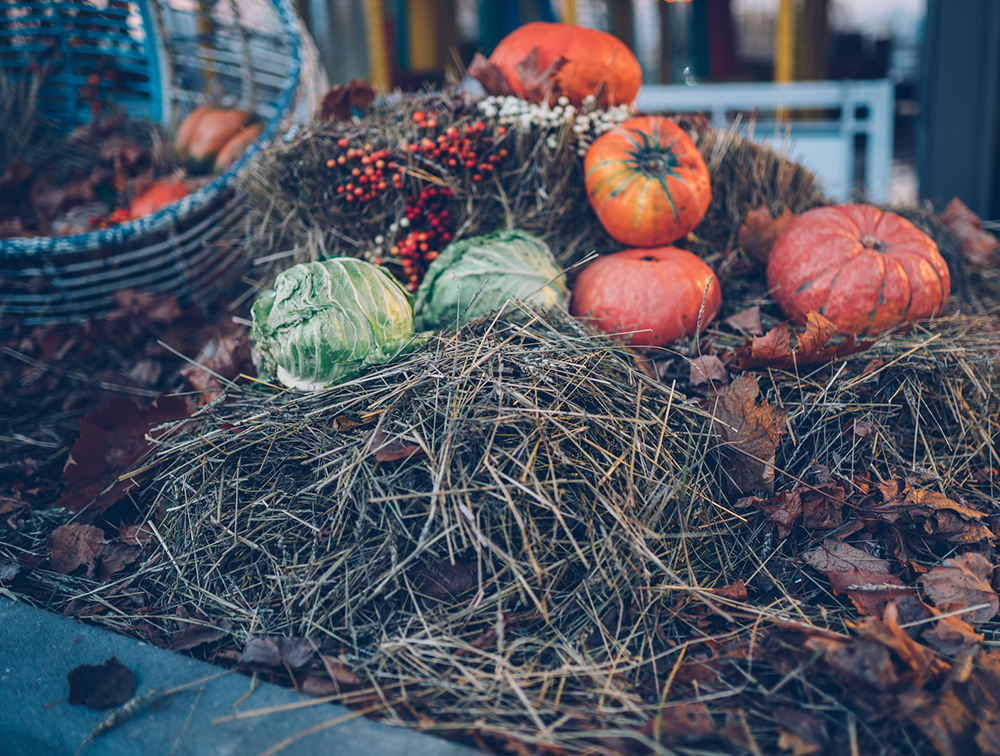Recent Posts
- Home
- Elevate Blog
- Say Boo to Landfills - Compost Your Pumpkin After Halloween!
Say Boo to Landfills - Compost Your Pumpkin After Halloween!
Posted on

The Hidden Horror of Halloween: Pumpkin Landfill Waste
What’s the scariest thing about Halloween? The waste!
In 2023, roughly 154 million Americans planned to carve a pumpkin as part of their Halloween celebrations.
About 1.9 billion pounds of pumpkins are grown each year in the US. Many of them are carved, decorated, and set on porches for Halloween. Then, a few days after Halloween, they are thrown in the trash. The aftermath is a chilling sight: More than 1 billion pounds of pumpkin waste ends up in landfills each year.

That’s a lot of waste going to landfills (talk about scary!)
Why is it a problem to dispose of pumpkins in landfills? Pumpkins, and other organic waste cannot break down effectively in a landfill!
Read More: What Happens to Compostable Items in a Landfill?
In a landfill environment our Halloween pumpkins release methane gas, a greenhouse gas more than 25 times as potent as carbon dioxide at trapping heat in the atmosphere.
What can you do with your pumpkin after Halloween? Give it a sustainable afterlife - as compost!

A Sustainable Afterlife (for Pumpkins)
Composting is more than just a method to dispose of your Halloween pumpkins sustainably; it’s a powerful tool in the fight against climate change.
When organic matter like food scraps and yard waste is sent to a landfill, it decomposes anaerobically (without oxygen), producing methane. Composting provides an aerobic (with oxygen) environment for organic matter to break down, which significantly reduces or even eliminates methane production.
Find Out More: Is Composting Better Than Landfill?
But the benefits don’t stop there. Composting transforms organic waste into valuable compost, a nutrient-rich soil amendment that enhances soil structure, provides a variety of essential nutrients for plants, and helps soil retain moisture. When your pumpkin is composted, it becomes new nutrients to enrich the soil!
How to Compost Pumpkins
Every part of a pumpkin is compostable - skin, meat, stem, guts. Pumpkins are a great source of nitrogen for your compost pile! Pumpkin seeds are compostable too but they’re also quite hardy, if you include them in your compost you may find accidental pumpkins growing in your pile next year.
You will need to prepare your pumpkin before throwing it in the compost pile. Halloween pumpkins are often decorated with non-compostable items such as glitter, stickers, and candles. Additionally the skin can be quite thick, meaning it will take longer to decompose.
Prepare your Pumpkin for composting:
- Clean Up: Remove any non-compostable decorations such as glitter, stickers, and remnants of candles from the pumpkin.
- Extract Seeds: While the seeds are compostable, you may want to take them out to prevent surprise pumpkins next year.
- Smash Pumpkin: Break the pumpkin into smaller pieces to increase the surface area. This helps microorganisms break it down more efficiently (plus it’s fun!)
- Create Compost: Use the pumpkin pieces in your compost, aiming for a 3:1 ratio of carbon-rich (think dead leaves or shredded paper) to nitrogen-rich (your pumpkin) materials. Turn your compost regularly and keep it moist.
Need more tips for starting a compost pile? Read our Guide to Home Composting

Many municipalities and neighborhoods offer pumpkin disposal options through designated drop-off sites and pumpkin smash events, especially useful if you don’t have a compost pile or curbside compost service.
- SCARCE in Illinois hosts an annual Pumpkin Smash event to divert pumpkins from landfills. In 2022 they composted over 232 tons of pumpkins! Check to find a location.
- Use the Compost Now map to find a composter near you
- Stay updated with local news outlets, farmers markets, or representatives for composting services and pumpkin collection or smash events near you.
Composting isn't just about waste reduction. It's a huge stride towards curbing climate change, slashing greenhouse gas emissions, and rejuvenating the soil.
Let’s Make Composting Mainstream!

 Loading... Please wait...
Loading... Please wait...



